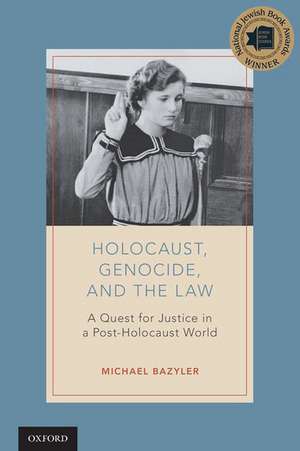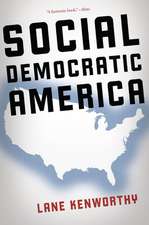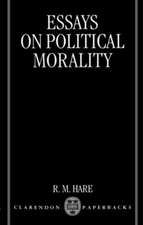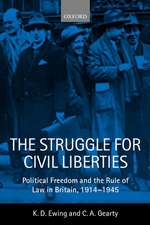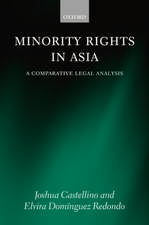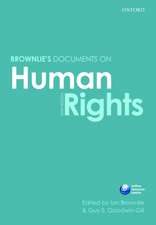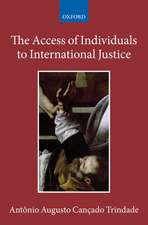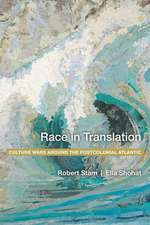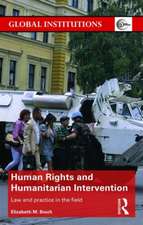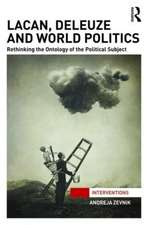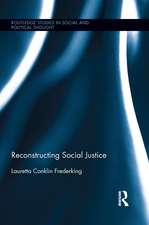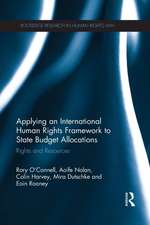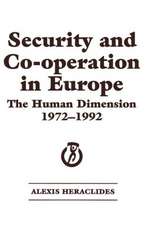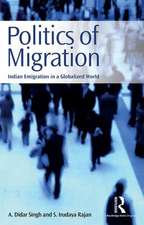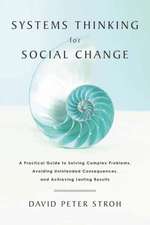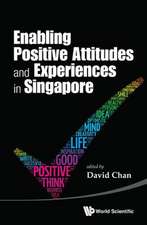Holocaust, Genocide, and the Law: A Quest for Justice in a Post-Holocaust World
Autor Michael Bazyleren Limba Engleză Paperback – 27 iul 2017
| Toate formatele și edițiile | Preț | Express |
|---|---|---|
| Paperback (1) | 343.11 lei 11-16 zile | |
| Oxford University Press – 27 iul 2017 | 343.11 lei 11-16 zile | |
| Hardback (1) | 733.22 lei 32-37 zile | |
| Oxford University Press – 8 dec 2016 | 733.22 lei 32-37 zile |
Preț: 343.11 lei
Preț vechi: 388.32 lei
-12% Nou
Puncte Express: 515
Preț estimativ în valută:
65.66€ • 70.21$ • 54.74£
65.66€ • 70.21$ • 54.74£
Carte disponibilă
Livrare economică 17-22 martie
Preluare comenzi: 021 569.72.76
Specificații
ISBN-13: 9780190664039
ISBN-10: 0190664037
Pagini: 394
Dimensiuni: 155 x 231 x 23 mm
Greutate: 0.56 kg
Editura: Oxford University Press
Colecția OUP USA
Locul publicării:New York, United States
ISBN-10: 0190664037
Pagini: 394
Dimensiuni: 155 x 231 x 23 mm
Greutate: 0.56 kg
Editura: Oxford University Press
Colecția OUP USA
Locul publicării:New York, United States
Recenzii
While the book dispenses with some scholarly conventions, it also marks the first time that an expert in any field has attempted such an enormous project. For this Bazyler deserves our applause. ... Newcomers and non-specialists will benefit from Bazyler's summaries, and his book offers an excellent resource for engaging students in the issues.
This book should be read by every lawyer or social scientist working on issues of genocide, genocide-prevention, or international criminal law. Those who are interested in the role that law itself has played in fomenting genocide should also read this very comprehensive and approachable text.
Bazyler deploys considerable legal expertise to underpin his first, and for readers of this Journal arguably most important thesis: that the Nazi persecution of the Jews, leading ultimately to the attempted genocide of the entire Jewish people, was carried out within a framework of law, even though this was in reality a corrupted and perverted form of pseudo-legality in which only the external forms of true legality were preserved.
Michael Bazyler has written a comprehensive and compelling study of the legal historiography of the Holocaust, the paradigm of radical evil, and of genocide, the 'crime of crimes.' This book makes a singular contribution to the pursuit of international justice, and to the prevention and combatting of mass atrocity and genocide in our time. An indispensable resource." Irwin Cotler, former Minister of Justice and Attorney General of Canada
Holocaust, Genocide, and the Law is a carefully crafted and beautifully written analysis of the many ways in which the law was and is deeply implicated in an understanding of the Shoah. Prof. Bazyler crafts a series of important arguments both about the law's dark side and its illuminating and liberating possibilities. This book is a tour de force." David Fraser, Professor of Law and Social Theory, University of Nottingham School of Law
A unique and important book. Michael Bazyler presents a broad, up-to-date overview of Holocaust justice ranging from landmark criminal trials to restitution litigation to the prosecution of Holocaust deniers. He also discusses the ramifications of the Holocaust's judicial reckoning on how the world has addressed, successfully or not, contemporary state-sponsored atrocities across the globe." Norman Goda, Braman Professor of Holocaust Studies, University of Florida
Prof. Bazyler's book is different than other books on the Holocaust. He first depicts the Holocaust as 'a legal event,' arguing that it was the law, and not its absence, that became an instrument for destruction. He then analyzes current efforts to build a legal world based on what he labels 'Post-Holocaust Law.' This book is a must-read." Dina Porat, Professor emeritus of Jewish history and Head of the Kantor Center in Tel Aviv University, and Chief Historian of Yad Vashem in Jerusalem
For the first time in the literature, this outstanding book holistically considers the entire output of Holocaust litigation-both criminal and civil. Bazyler has done a masterful job of weaving together profound doctrinal, philosophical, and historical themes into a powerful narrative that explains how justice emerged in such protean forms from one of humanity's greatest single cataclysms." Gregory S. Gordon, Professor, The Chinese University of Hong Kong, Faculty of Law
This book provides a distinctive approach to understanding the Holocaust in specifically legal terms. No one interested in either the Holocaust itself or the ways in which we prosecute human rights violations will want to miss its informed, compelling discussion." John Torpey, Presidential Professor of Sociology and History, and Director, Ralph Bunche Institute for International Studies, Graduate Center, City University of New York
This book should be read by every lawyer or social scientist working on issues of genocide, genocide-prevention, or international criminal law. Those who are interested in the role that law itself has played in fomenting genocide should also read this very comprehensive and approachable text.
Bazyler deploys considerable legal expertise to underpin his first, and for readers of this Journal arguably most important thesis: that the Nazi persecution of the Jews, leading ultimately to the attempted genocide of the entire Jewish people, was carried out within a framework of law, even though this was in reality a corrupted and perverted form of pseudo-legality in which only the external forms of true legality were preserved.
Michael Bazyler has written a comprehensive and compelling study of the legal historiography of the Holocaust, the paradigm of radical evil, and of genocide, the 'crime of crimes.' This book makes a singular contribution to the pursuit of international justice, and to the prevention and combatting of mass atrocity and genocide in our time. An indispensable resource." Irwin Cotler, former Minister of Justice and Attorney General of Canada
Holocaust, Genocide, and the Law is a carefully crafted and beautifully written analysis of the many ways in which the law was and is deeply implicated in an understanding of the Shoah. Prof. Bazyler crafts a series of important arguments both about the law's dark side and its illuminating and liberating possibilities. This book is a tour de force." David Fraser, Professor of Law and Social Theory, University of Nottingham School of Law
A unique and important book. Michael Bazyler presents a broad, up-to-date overview of Holocaust justice ranging from landmark criminal trials to restitution litigation to the prosecution of Holocaust deniers. He also discusses the ramifications of the Holocaust's judicial reckoning on how the world has addressed, successfully or not, contemporary state-sponsored atrocities across the globe." Norman Goda, Braman Professor of Holocaust Studies, University of Florida
Prof. Bazyler's book is different than other books on the Holocaust. He first depicts the Holocaust as 'a legal event,' arguing that it was the law, and not its absence, that became an instrument for destruction. He then analyzes current efforts to build a legal world based on what he labels 'Post-Holocaust Law.' This book is a must-read." Dina Porat, Professor emeritus of Jewish history and Head of the Kantor Center in Tel Aviv University, and Chief Historian of Yad Vashem in Jerusalem
For the first time in the literature, this outstanding book holistically considers the entire output of Holocaust litigation-both criminal and civil. Bazyler has done a masterful job of weaving together profound doctrinal, philosophical, and historical themes into a powerful narrative that explains how justice emerged in such protean forms from one of humanity's greatest single cataclysms." Gregory S. Gordon, Professor, The Chinese University of Hong Kong, Faculty of Law
This book provides a distinctive approach to understanding the Holocaust in specifically legal terms. No one interested in either the Holocaust itself or the ways in which we prosecute human rights violations will want to miss its informed, compelling discussion." John Torpey, Presidential Professor of Sociology and History, and Director, Ralph Bunche Institute for International Studies, Graduate Center, City University of New York
Notă biografică
Michael Bazyler is Professor of Law and The 1939 Society Scholar in Holocaust and Human Rights Studies at the Fowler School of Law, Chapman University. He is the author of Holocaust Justice: The Battle for Restitution in America's Courts (2003), Holocaust Restitution: Perspective on the Litigation and its Legacy (co-authored with Roger Alford, 2006), Forgotten Trials of the Holocaust (co-authored with Frank Tuerkheimer, 2014), and numerous articles on international human rights law. He has testified before Congress and his writings have been cited by the United States Supreme Court.
